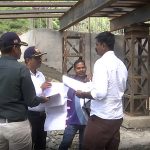After the political transformation of the erstwhile state of Jammu & Kashmir, through Jammu & Kashmir Reorganization Act (herein after called the Act), which was passed by the Union legislature on 5th of August 2019 with 2/3rd majority and came into force on 30th October 2019 known as appointed day, into a Union Territory with its legislature, the legislative mechanism earlier in vogue in Jammu & Kashmir has ceased to exist and bicameral legislature has been replaced by a single house Legislative Assembly. Section 4 of the Act envisages the creation of UT of Jammu & Kashmir with its legislature.
The nature and composition of the legislative assembly of the UT of Jammu & Kashmir has been prescribed in section 14 & subsequent sections of chapter iii of the Act.
Composition
Section 14 prescribes the composition of the legislative assembly of the UT of Jammu & Kashmir and provides that the Lt. Governor shall be the administrator of the UT of Jammu & Kashmir who shall be appointed under Article 239 of the Indian Constitution. The total number of 114 seats in the legislative assembly to be filled by persons chosen by direction election shall be 114 of which 24 seats will remain vacant till the part of territorial area of the UT remains under the occupation of the state of Pakistan.
Reservations
A provision for reservation of the seats in the legislative assembly for schedule castes and schedule tribes is forming a part of statutory mechanism. To ensure the adequate representation of women in the assembly the Lt. Governor is authorized to nominate two members to the Legislative Assembly, if in his opinion the women are not adequately represented in the said Assembly. Similarly, to offer adequate representation to the displaced migrants and Pakistani refugees in the legislative assembly, powers have been vested in the Lt. Governor to nominate two and one member respectively.
Qualifications
To be qualified to be elected as a member of the Legislative Assembly a person shall be a citizen of Jammu & Kashmir and shall not be less than 25 years of age.
Duration and other matters
The life of the legislative assembly has been fixed as 5 years which was earlier 6 years in the erstwhile state of Jammu &n Kashmir. The power to prorogue and dissolve the Legislative assembly vests with the Lt. Governor of the Union Territory. The legislative assembly shall have to choose two of its members as Speaker and Dy Speaker of the Assembly. The first session of the Legislative Assembly after each general election and first session of each year shall commence with the address of the Lt. Governor who shall inform the Assembly of the cause of its summoning. The advocate general and every minister of the UT shall have right to audience and right to take part in the proceedings of the legislative assembly and committee of legislative Assembly.
Quorum
Ten members or one- tenth of the total number of members of the Legislative Assembly shall constitute a quorum for meeting of the legislative assembly and in the absence of quorum it shall be the duty of the speaker or any other persons acting as such to adjourn the Assembly.
Oath
Every member of the legislative assembly before taking his seat is bound to make and subscribe an Oath before the Lt. Governor or some other person appointed by the Lt. Governor. Anti defection laws as prescribed in the 10th schedule of the Indian constitution shall apply to the members of the legislative assembly.
Extent of the legislative Powers
The legislative assembly may make laws for the whole or any part of the UT of Jammu & Kashmir with respect to the any of the matters enumerated in the state and concurrent list except the subjects of public order & police. In case of inconsistency between the laws passed by the parliament of India and the legislative Assembly of the UT of Jammu & Kashmir the law of the parliament shall prevail over the law of the Legislative Assembly. The financial bills or amendments shall not be introduced in the Legislative Assembly without the recommendation of the Lt. Governor. After the passage of the bill the Lt. Governor may either assent the bill or reserve the bill for presidential assent or may withhold assent.
Limitations
No discussion with regard to the conduct of the judge of the Hon’ble Supreme court or High court shall take place in the legislative assembly.
(Author is Senior Prosecuting Officer in J&K Prosecution Services. Email: [email protected])








